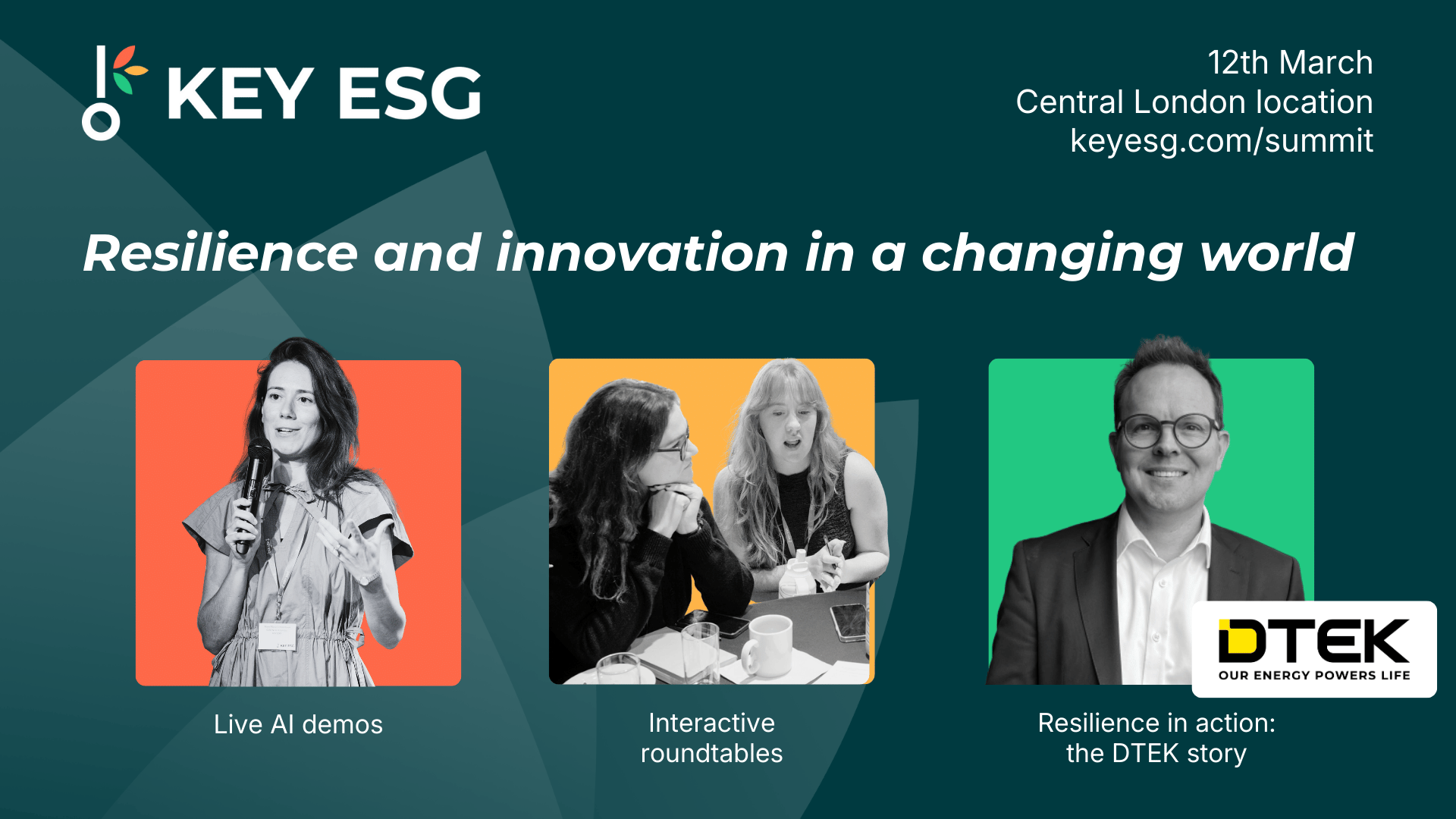KEY ESG is delighted to host experts from the Science Based Targets initiative (SBTi), Peter Uhlenbruch and Marco Swan, for a webinar on the recently released Financial Institutions Net-Zero Standard.
Date: Thursday, 30 October 2025 at 4pm CET / 10am ET
Speakers: Peter Uhlenbruch & Marco Swan
In July 2025, the Science Based Targets initiative (SBTi) released its first-ever Financial Institutions Net-Zero Standard. This landmark framework equips financial institutions with a science-based, credible, and robust approach to align capital allocation with pathways that limit global warming to 1.5°C and achieve net-zero emissions by 2050.
For private equity, the Standard marks a pivotal moment. As active owners and long-term capital providers, private equity firms and asset managers are uniquely positioned to drive decarbonisation across their portfolios.
Join KEY ESG on 30th October 2025 for a deep-dive into the new Standard, featuring expert speakers Peter Uhlenbruch and Marco Swan from the SBTi. The session will explore:
- The key elements of the Financial Institutions Net-Zero Standard
- Practical guidance for private equity firms and asset managers looking to set Net-Zero targets
- Investor and LP expectations driving climate accountability in their investments
👉 Don’t miss this opportunity to understand how financial institutions can use the SBTi Net-Zero Standard to embed credibility, drive portfolio transformation, and lead in the net-zero transition.
Speakers
About Peter Uhlenbruch
Peter is Financial Institutions Engagement Manager at the Science Based Targets Initiative (SBTi), where he leads SBTi’s outreach with asset owners and asset managers. Peter was previously Director of Financial Sector Standards at the UK Responsible Investment charity, ShareAction, and has held a range of ESG-related research roles at CDP, MSCI, and Ownership Matters.
About Marco Swan
Marco is Financial Institutions Engagement Manager at the Science Based Targets initiative (SBTi), where he leads SBTis’ outreach with private equity. Marco’s background includes leading the Climate Ambition Accelerator at the UN Global Compact Network Netherlands, and has supported hundreds of companies in navigating the path toward setting and implementing science-based targets. He brings deep insight into the practical challenges and strategic opportunities that businesses face when integrating climate goals into business and investment decisions.
Webinar Transcript
KEY ESG is delighted to host experts from the Science Based Targets initiative (SBTi), Peter Uhlenbruch and Marco Swan, for a webinar on the recently released Financial Institutions Net-Zero Standard.
Date: Thursday, 30 October 2025 at 4pm CET / 10am ET
Speakers: Peter Uhlenbruch & Marco Swan
In July 2025, the Science Based Targets initiative (SBTi) released its first-ever Financial Institutions Net-Zero Standard. This landmark framework equips financial institutions with a science-based, credible, and robust approach to align capital allocation with pathways that limit global warming to 1.5°C and achieve net-zero emissions by 2050.
For private equity, the Standard marks a pivotal moment. As active owners and long-term capital providers, private equity firms and asset managers are uniquely positioned to drive decarbonisation across their portfolios.
Join KEY ESG on 30th October 2025 for a deep-dive into the new Standard, featuring expert speakers Peter Uhlenbruch and Marco Swan from the SBTi. The session will explore:
- The key elements of the Financial Institutions Net-Zero Standard
- Practical guidance for private equity firms and asset managers looking to set Net-Zero targets
- Investor and LP expectations driving climate accountability in their investments
👉 Don’t miss this opportunity to understand how financial institutions can use the SBTi Net-Zero Standard to embed credibility, drive portfolio transformation, and lead in the net-zero transition.
Speakers
About Peter Uhlenbruch
Peter is Financial Institutions Engagement Manager at the Science Based Targets Initiative (SBTi), where he leads SBTi’s outreach with asset owners and asset managers. Peter was previously Director of Financial Sector Standards at the UK Responsible Investment charity, ShareAction, and has held a range of ESG-related research roles at CDP, MSCI, and Ownership Matters.
About Marco Swan
Marco is Financial Institutions Engagement Manager at the Science Based Targets initiative (SBTi), where he leads SBTis’ outreach with private equity. Marco’s background includes leading the Climate Ambition Accelerator at the UN Global Compact Network Netherlands, and has supported hundreds of companies in navigating the path toward setting and implementing science-based targets. He brings deep insight into the practical challenges and strategic opportunities that businesses face when integrating climate goals into business and investment decisions.
Webinar Transcript


%20(1).png)



.png)